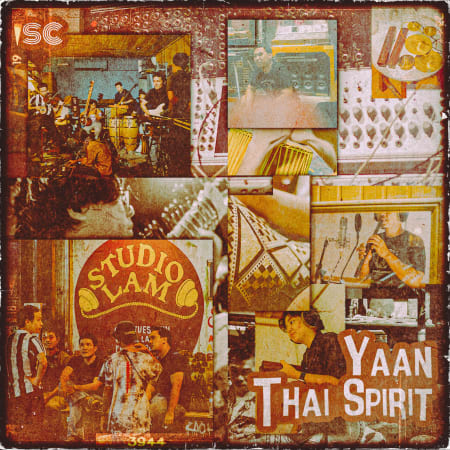Most known for its adventurous and psychedelic improvisations, this group of local Thai musicians known as ญาณ (or YAAN) has been searching for futuristic sounds using ancient instruments native to their rich musical heritage from Chinese and Indian roots to modern adaptations of Latin American percussion and rock and roll guitars.
Can you tell us a little bit about where you’re from your history and relationship with Bangkok and Thailand and how you met YAAN?
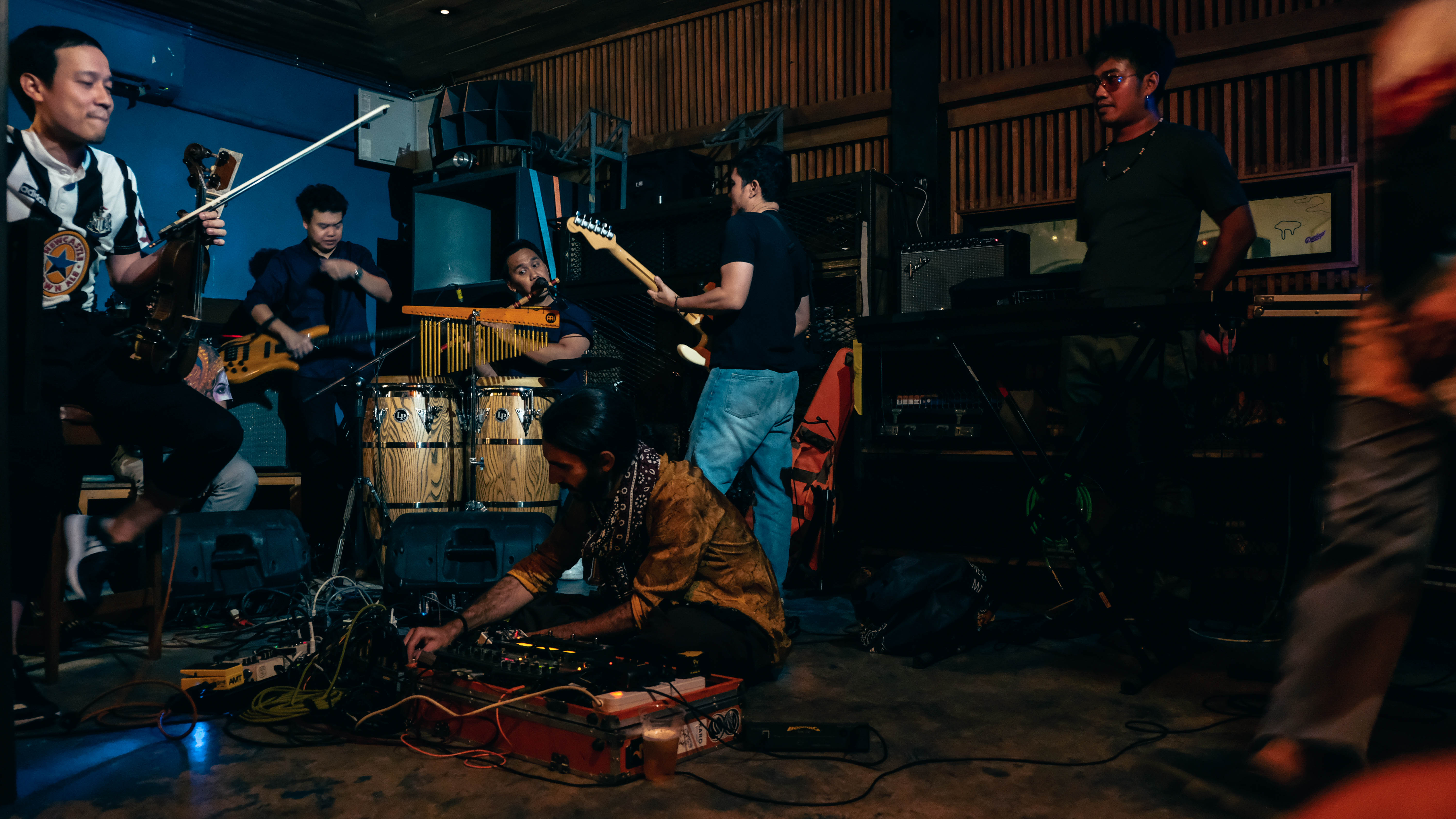
(Sunju) I was born and raised in Bangkok by parents of
Indian ethnicity, and my father who also has Japanese roots. I am from a city called Pune, which is located in the western region of India. My father, who was actively involved from the early to late 1990s in the local Thai rock scene, was an important factor towards my musical relationship with
Bangkok. He operated a number of enterprises in the field that catered to highly respected local musicians and bands, including his own music stores where he sold a wide range of instruments, albums, and CDs. He also earned his reputation of having great taste in music & importing custom-made guitars that many international bands who were touring in the city would pay him a visit.
The connection with Yaan, occurred much later after meeting Tommy Hanson who caught my attention after learning of his involvement with the Reggae dub band called “Srirajah
Rockers”.
When did YAAN form and how many members are there in the group? Do you focus primarily on making records, performing live, or a balance of both?
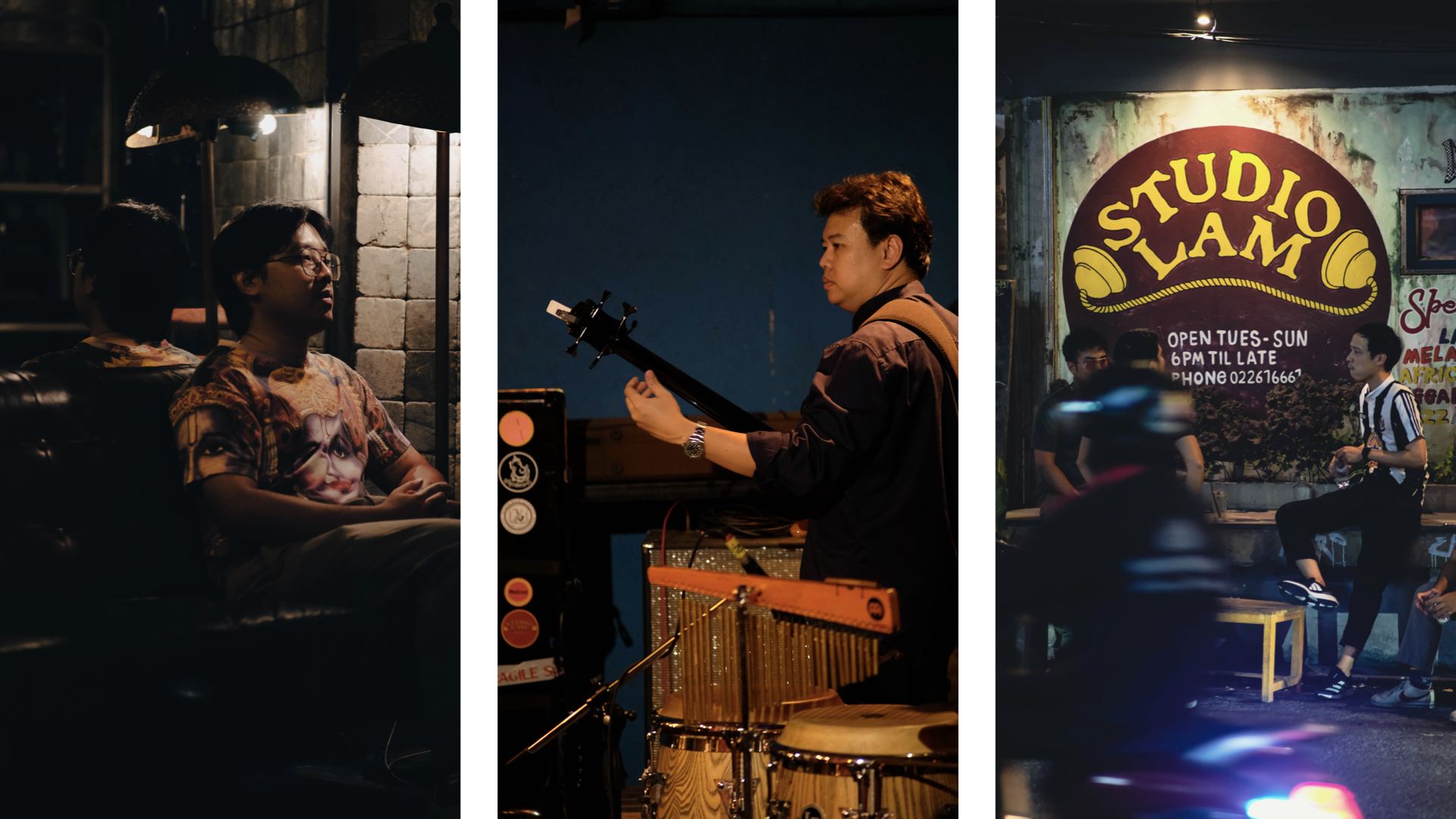
(YAAN) Yaan got its start around the year 2012 with the recording of a single called naam (water). The line up of the group has since had many evolutions and currently consists of eight members with Yong and Nop being the only original members. Together we have a very diverse musical background, with some members trained in modular synthesis, jazz, western classical music, classical Indian music, Latin percussion, African drumming, modular synthesis and of course Thai music styles among many others. Each member performs using a wide range of instruments but I will introduce them with their most prominent instruments:
- Chawalit Saowapakpongchai: Violin, Guitar and Percussion
- Noparuj Satjawan: Sitar and Percussion
- Kontun Pitukpon: Keyboards, Khan, Phin and Pi Phutai Roots
- Noppakorn Worratanitkitkul: Electric Guitar and Acoustic Guitar
- Thinnawat Thaitae: Djembe, Dun Dun, Taiko Drum, Percussion
- Nonthikorn Samakkarn: Electric Bass
- Thakoon Boonma: Bansuri, Balafon, Dun Dun and Percussion
- Tommy Hanson: Sound Dubbing, Looping and Modular Synth
Yaan has always been a celebration of the spontaneous and ephemeral nature of music so performance has always been the main focus of the band; however, in 2017 Yaan completed its first full-length studio album Earthen O. In addition, we actively archive recordings of our live sessions, record commissioned tracks, and are planning our second album.
Q: Is there a musical sensibility in Thailand that you find distinct to the culture? What are the ways in which the contemporary music landscape in Bangkok and beyond offers a perspective that can’t be found elsewhere?
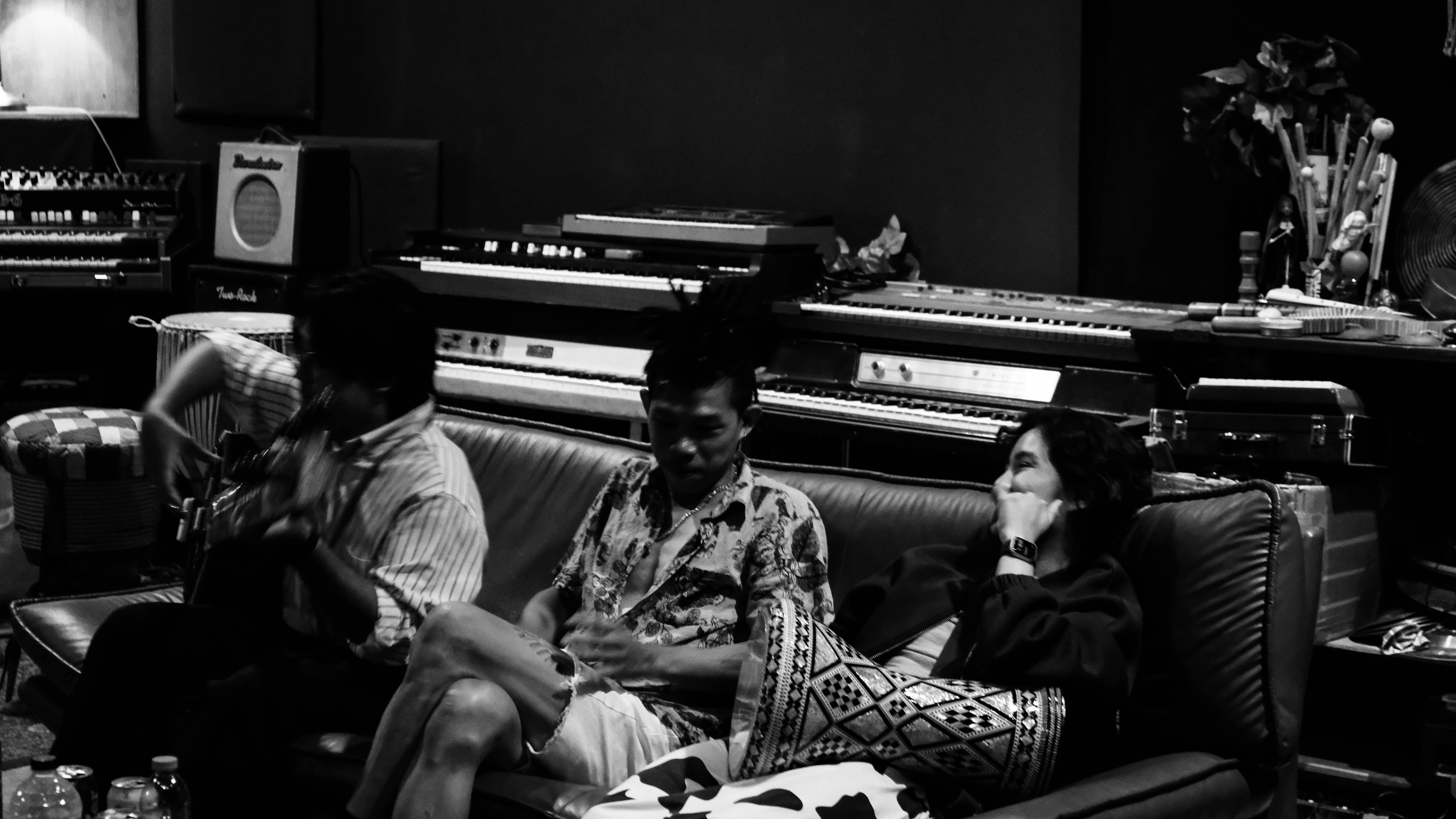
(Tommy) Thailand definitely has a very distinct approach to music and sound. I think it is safe to make an analogy to Thai food, something most people around the world are familiar with. Thai music, like its food, is a fusion of ancient influences pushed beyond recognition and a celebration of extremes. Some kind of slow calm disposition, perhaps a combination of thai stick, massage, buddhist meditation and the hot tropical climate clashes with a trance like hi-speed acceptance of death, love for funky fish sauces, caffeine, motorcycles and everything sweet and spicy.Traditionally, Thai music is also as diverse as its culture, and with four distinct regions the influences are vast and there is a lot to explore: southern sea gypsy music surrounded by the influences of Islam and Bob Marley tourist, the ornate gamelan-like abstractions of central thailand’s royal court music, the elevated folk sounds of indigenous mountain music from the golden triangle, and the heavy hitting bass below the lightning fast morlam chickin’ pickin’ of the dusty Issan farmlands. Due to Thailand’s late exposure to the internet, I feel the music community is also very forgiving with so much new music flooding the country all at once. For this reason you likely see screamo, gangster rap, and house music playing back to back at your local venue. Additionally, there is a unique love for live music and tolerance for chaos most evident in the infamous traffic jams and sprawling night markets with multiple pub acts playing simultaneously side by side. This openness, alongside a knack for DIY resourcefulness, is reflected in a very active musical underground as well as modern trends like the race to write the cutest indie pop track or the competitive drunkenness of Thai dance blasting from a fully modded pickup truck complete with hydraulics, led dance platforms and a handmade 40 speaker array. It is a unique combination of all of these things that influence not just Yaan but a very vibrant music scene.
When did you start Siamese Twins Records and what is the guiding philosophy for the label’s offerings?
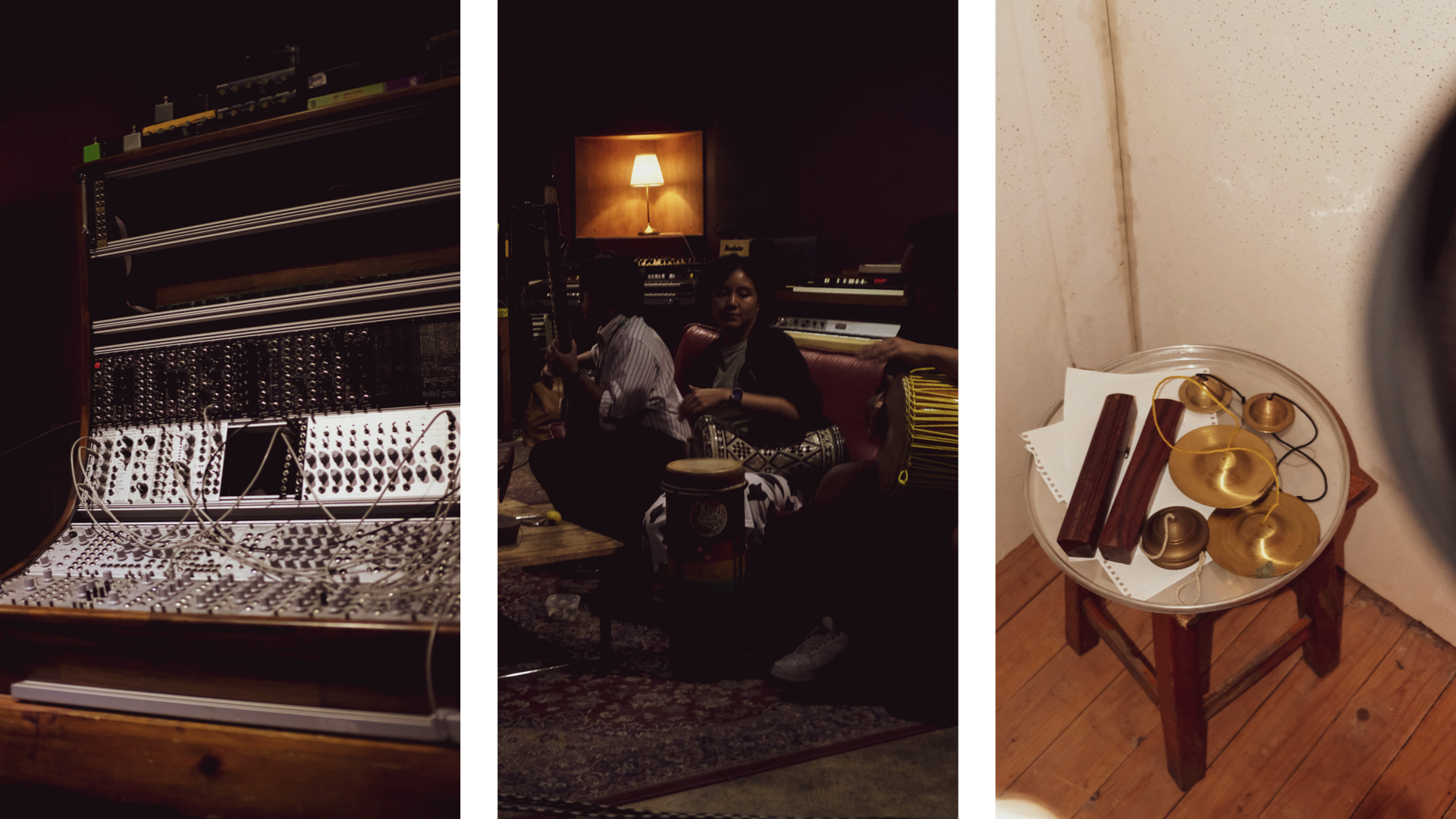
(Sunju) The label began its journey in early 2020 alongside my good friends Johan, Taychinn and Yoshi - but the foundation was built long-before hosting parties here in Bangkok & creating connections towards global artists with the Asian electronic music community. By doing these events we connected with a lot of artists across the region.
On a regional level there is a strong scene growing here with mutual respect and collaboration between those hosting events, owning clubs, record stores or labels with the same ethos. We would invite those artists and sometimes they would share their music with us. Lots of it deserved to be heard by a much bigger audience, hence the idea was always to embrace Asian identity and try not to attach ourselves to something we are not. To reach for sounds that are rooted in our surroundings and not replicate something that already exists.
Taychin Dunnvatanachit, our creative designer and label co-founder, created a unique appearance for the label using traditional designs paying homage to the Sak Yant tattoo culture. The latter being the kind of intercultural dialogues we are looking for.
what did you learn from making this sample pack? What was the most inspiring moment in the creative and production process?
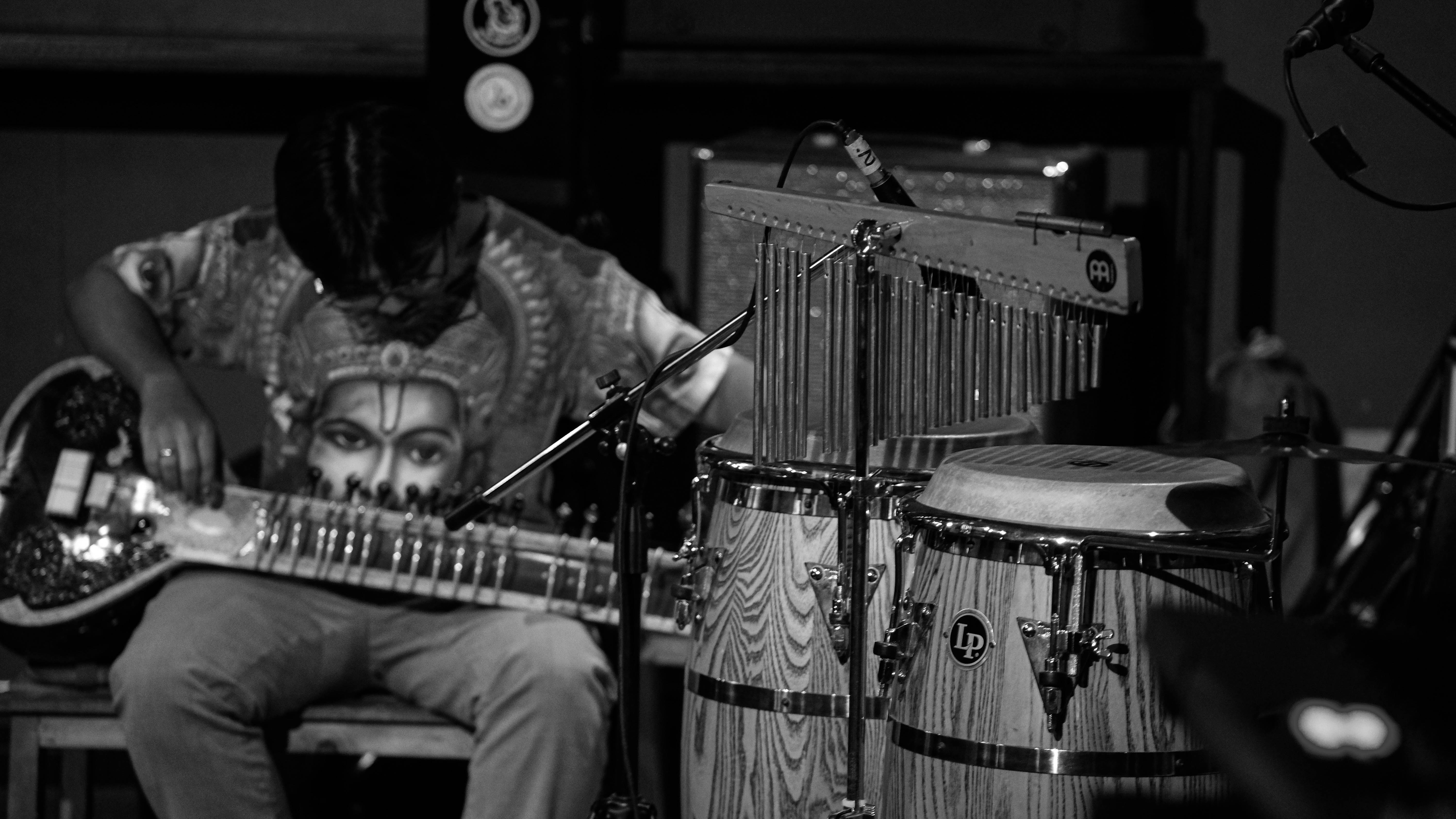
(YAAN) We actually learned quite a lot during the recording of this pack. Over the years the band has extensively recorded for film producers, cultural projects and other local artists, but outside of recording samples for use in our own samplers, we have never considered making a sample pack. Of course, it does make a lot of sense! We are well known for our multi-instrumentalist mentality, with most members bringing three or four different instruments to each show. The most inspiring moment was definitely during the recording process. Let's just say when our band gets together it is always a celebration, and in this session it ended up a bit of a spotlight ordeal with the other members heckling and cheering from all around. At one point, it became an elected challenege for each member to play their most "advanced technique" and it had us all in tears of both laugher and awe! You could also say that the sample pack sessions also gave the bands some inspiration to work on their next album, something we hope to share with all of you soon!
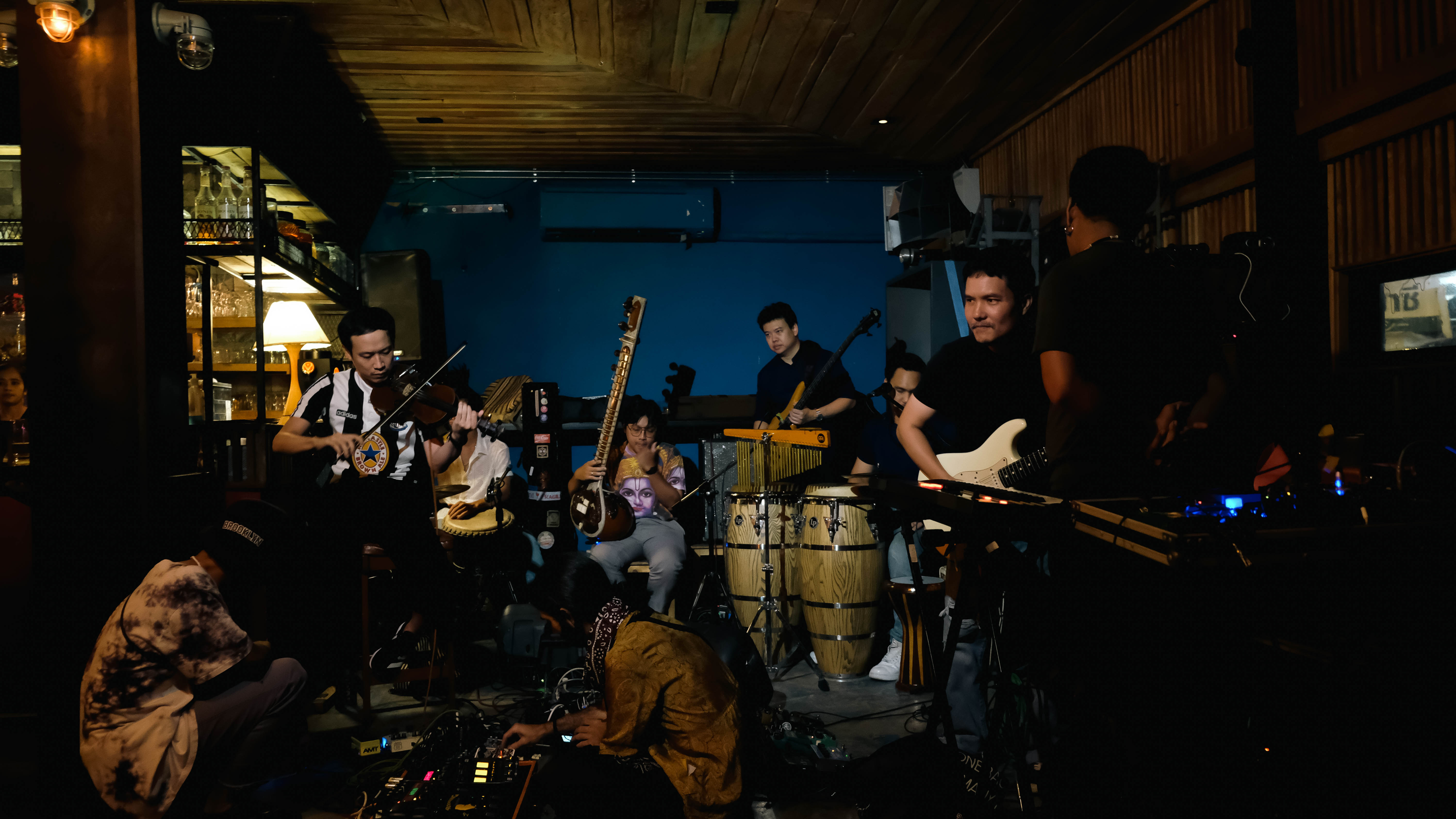
Check out the YAAN Thai Spirit sample pack by clicking the link below and discover the innovatory and eclectic sounds of Thai supergroup, ญาณ (YAAN). This pack was made in collaboration with Sunju Hargun and Thailand Music Maker Studio.


